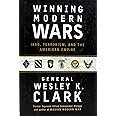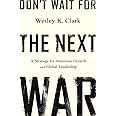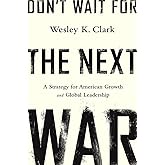
Enjoy fast, free delivery, exclusive deals, and award-winning movies & TV shows with Prime
Try Prime
and start saving today with fast, free delivery
Amazon Prime includes:
Fast, FREE Delivery is available to Prime members. To join, select "Try Amazon Prime and start saving today with Fast, FREE Delivery" below the Add to Cart button.
Amazon Prime members enjoy:- Cardmembers earn 5% Back at Amazon.com with a Prime Credit Card.
- Unlimited Free Two-Day Delivery
- Streaming of thousands of movies and TV shows with limited ads on Prime Video.
- A Kindle book to borrow for free each month - with no due dates
- Listen to over 2 million songs and hundreds of playlists
- Unlimited photo storage with anywhere access
Important: Your credit card will NOT be charged when you start your free trial or if you cancel during the trial period. If you're happy with Amazon Prime, do nothing. At the end of the free trial, your membership will automatically upgrade to a monthly membership.
Buy new:
-56% $10.99$10.99
Ships from: Amazon Sold by: Blake Academic
Save with Used - Good
$1.24$1.24

Download the free Kindle app and start reading Kindle books instantly on your smartphone, tablet, or computer - no Kindle device required.
Read instantly on your browser with Kindle for Web.
Using your mobile phone camera - scan the code below and download the Kindle app.

OK
Winning Modern Wars: Iraq, Terrorism And The American Empire Hardcover – October 15, 2003
Purchase options and add-ons
- Print length240 pages
- LanguageEnglish
- PublisherPublicAffairs
- Publication dateOctober 15, 2003
- Dimensions6.25 x 1 x 9.5 inches
- ISBN-101586482181
- ISBN-13978-1586482183
The Amazon Book Review
Book recommendations, author interviews, editors' picks, and more. Read it now.
Frequently bought together

Customers who viewed this item also viewed
Editorial Reviews
Amazon.com Review
From Publishers Weekly
Copyright 2003 Reed Business Information, Inc.
From Booklist
Copyright © American Library Association. All rights reserved
Review
"...presents a coherent analysis of our war in Iraq, the battle against terrorism, and America as an empire." -- St. Petersburg Times
"Winning Modern Wars succeeds on many levels...It's a valuable perspective no matter which candidate you vote for." -- BusinessWeek, September 19, 2003
"Don't let the heady title fool you: This is a man spoiling for a fight." -- Rocky Mountain News, October 10, 2003
"General Wesley K. Clark gives us the secrets of American military power, and its limits." -- New York Times Book Review, February 22, 2004
"Well written, to the point, and easy to read. Clark's effort is highly recommended..." -- Library Journal, November 15, 2003
About the Author
From The Washington Post
This is a tale of two books, each of them slim and each instructive in some fashion as the political new year begins to gather speed for the rush toward an American election day and a popular decision on the Bush administration's conduct of its wars and foreign policies.
Written last summer, before he declared his candidacy for President Bush's job, Wesley Clark's Winning Modern Wars presents a sharply focused critical account of our entanglement in Iraq, in the war and in the even more deadly postwar phase of operations there. Without question, it was Gen. Clark and Gen. Barry McCaffrey whom Vice President Dick Cheney referred to when, last April, he laughed at what he called "retired military officers embedded in TV studios."
They and certainly every other commentator, including myself, had gotten something or some things wrong as Operation Iraqi Freedom unfolded in fits and starts and lightning strikes into the heartland of Saddam Hussein's beleaguered nation. But it would become amply clear that the retired generals and other commentators had no exclusive patent on being wrong when it came to Iraq.
Cheney himself and his good buddy Defense Secretary Donald H. Rumsfeld were still running victory laps even as a stubborn insurgency neither of them thought possible tied down 130,000 American soldiers. In the balance of the year, the Iraqi malcontents and foreign jihadists killed more American soldiers than were lost in three weeks of actual combat.
Clark writes: "Today many are asking fundamental questions about the war against Saddam, such as whether the operation was justified, whether it has succeeded in reducing the terrorist threat we face, what precisely we are going to do in Iraq -- for how long and at what cost -- and how we should win the broader war against terror." The general adds that these questions about the war need to be answered now, "before the costs and problems associated with our actions have grown so great that change will be seen as failure and continuation will be prohibitively costly."
Clark's hindsight analysis and his reporting on the events of the three-week war are right on target. The general uses unnamed "others" to point the finger at Rumsfeld for micromanaging the deployment of American ground forces. This penchant of Rumsfeld's, and the penny-pinching that went with it, resulted in deploying too small a ground combat force and taking unnecessary risks in the war plan. A second major criticism is of the administration's endgame, which short-changed postwar planning and overlooked how difficult the transition to civilian rule would be for a nation and people subjugated by Saddam Hussein for decades -- a "profound flaw," in Clark's judgment.
In short, the administration (with the exception of Secretary of State Colin L. Powell) gave little or no thought to what happens when the destruction of war ends and the serious task of securing the peace and rebuilding a shattered nation begins. Rumsfeld and his neoconservative aides, including Paul Wolfowitz and Douglas Feith, didn't believe there would be a real problem, didn't believe in nation-building and thus did not plan for it.
As for all that noise about Rumsfeld's revolutionary transformation of the military, radical rewriting of Clausewitzian principles and birthing of a new way of war, Clark says this "is largely a reality . . . inherited when [Bush officials] took office in 2001."
There are changes needed, and changes afoot, in the Army. But Rumsfeld owes the simple existence of an Army still barely large enough to handle unending commitments old and new -- in Iraq, Bosnia, Afghanistan, Korea, the Sinai and elsewhere -- to then-Army Chief of Staff Eric K. Shinseki's successfully fending off a Rumsfeld attempt in 2001 to cut the active-duty Army from 10 divisions to eight, and the Army National Guard from eight divisions to four. In the first part of 2001, the office of the secretary of defense firmly believed that the United States was beginning a 20-year strategic pause, a welcome breathing space that could be used to transform (read: downsize) the Army and gain billions in savings on personnel that then would be spent building a strategic missile defense.
The events of Sept. 11, 2001, made it clear there would be no pause, and made it just as clear that the Army needed every soldier it had, active and reserve and National Guard, to deal with what was coming. Far from excoriating Shinseki, Rumsfeld should have been grateful that the general saved him from himself.
As Iraq ate up our deployable military might and consumed an estimated $100 billion per year of our national budget, what of the global war on terror? Clark says, "the analysis suggests that defeating terrorism is more difficult and far-reaching than we have assumed. Not only does the struggle continue; our success is far from assured."
Yet that hasn't tempered the ambitions of the Bush White House. Clark asserts: "Overnight [after Sept. 11], U.S. foreign policy became not only unilateralist but moralistic, intensely patriotic, and assertive, planning military action against Iraq and perhaps other states in the Middle East, and intimating the New American Empire." He clearly believes we have gone in the wrong direction and has been stumping the country saying so.
And here we consider, briefly as deserved, Midge Decter's hagiography of her friend of two decades' standing, Donald Rumsfeld. The best that can be said of Rumsfeld: A Personal Portrait is that it is mercifully short.
Decter has been described as the doyenne of the neoconservative movement: wife of one of its founders, Norman Podhoretz; mother of a key adherent, John Podhoretz; and an in-law of the White House's Middle East expert Elliott Abrams. Like other neoconservatives, she has made a long leap from left to right, landing lightly at the end just as dogmatically certain of rectitude as before. The neocons, by virtue of that background, are obviously more witty and literate than the plain old cons.
Not that Rumsfeld: A Personal Portrait displays much in the way of wit or erudition. Consider page one of the prelude: "It was a warm autumn evening in 2001, and we were dining alfresco on a terrace overlooking New York's Central Park. A woman I had known for many years -- a handsome, elegant and well-connected member of the city's cultural and artistic community -- was seated across from me. 'Oh, Rumsfeld,' she practically cooed, 'I just love the man! To tell you the truth, I have his picture hanging in my dressing room.' "
Or this, on page two, same prelude: "I had been very pleased then, as one would be in the case of someone one knows and respects, when after more than a quarter of a century [Rumsfeld] had been returned to a high position in the United States government. But for him to be the object of so very feminine a kind of admiration was something altogether different. This was the stuff -- no other word would do -- of glamour."
Or this, at the end of the book: "And then there is his stardom, which has carried with it, and to some extent furthered, some kind of change in American attitudes. The popular 'discovery' of Donald H. Rumsfeld spells the return of the ideal of the Middle American family man, with all that such an ideal entails in the way of vitality, determination, humor, seriousness, and abiding self-confidence, along with protectiveness toward loved ones, neighbors, and country."
That is a debatable point, to put it mildly, given the harsh reception accorded those Rumsfeldian American ideals in Iraq and among our traditional allies in Western Europe (especially those Rumsfeld has humorously dismissed as "Old Europe"). Rumsfeld would do well to buy up every copy of this book he can locate to prevent any wider circulation.
Reviewed by Joseph L. Galloway
Copyright 2004, The Washington Post Co. All Rights Reserved.
Product details
- Publisher : PublicAffairs; 1st edition (October 15, 2003)
- Language : English
- Hardcover : 240 pages
- ISBN-10 : 1586482181
- ISBN-13 : 978-1586482183
- Item Weight : 1.15 pounds
- Dimensions : 6.25 x 1 x 9.5 inches
- Best Sellers Rank: #2,546,237 in Books (See Top 100 in Books)
- #748 in Iraq History (Books)
- #2,870 in Terrorism (Books)
- #3,582 in Middle Eastern Politics
- Customer Reviews:
About the author

Discover more of the author’s books, see similar authors, read author blogs and more
Customer reviews
Customer Reviews, including Product Star Ratings help customers to learn more about the product and decide whether it is the right product for them.
To calculate the overall star rating and percentage breakdown by star, we don’t use a simple average. Instead, our system considers things like how recent a review is and if the reviewer bought the item on Amazon. It also analyzed reviews to verify trustworthiness.
Learn more how customers reviews work on Amazon-
Top reviews
Top reviews from the United States
There was a problem filtering reviews right now. Please try again later.
Clark was against the war in Iraq. This military venture has failed all intended political purposes. We have not found a Iraqi nuclear program. There are no links between Al Qaeda and Saddam Hussein. The invasion of Iraq has not squelched terrorism, but instead exacerbated as thousands of terrorists throughout the Islamic World infiltrate Iraq and shoot U.S. soldiers as easy target. Installing a lasting democracy seems unlikely.
The U.S. Administration post war planning was terrible. The Administration made utopic assumptions that the Iraqis would be ecstatic about being liberated by U.S. forces. The Administration underestimated the Baath party underground resistance, the degree of Shiite factionalism. It also disbanded the Iraqi Army adding 400,000 armed men to the rank of the unemployed. Many boosted the underground Baath party resistance. In attempting to retain full control of the Iraq post war situation, the Administration raised its costs and risks. This is instead of leveraging the UN and NATO peacekeeping forces.
Per Clark, terrorism is supranational with no State allegiance. The Administration is attempting to fight it with an obsolete Cold War framework of State-vs-State conflicts. It is attempting to fight terrorism as it fought back Nazism in WWII, and Communism thereafter. The Administration has listed six other targeted countries for upcoming preemptive wars. These include: Syria, Lebanon, Libya, Iran, Somalia, and Sudan. This is a mistake that the U.S. can't afford. Taking over these countries will do nothing to fight terrorism.
The U.S. is concerned about the wrong countries. The root causes of Islamic terrorism are:
a) Saudi Arabia extreme Wahhabist ideology which dominates its schools;
b) the impoverished, corrupt society of Pakistan and its madrassas schools which teach an equally extreme version of Islam; and
c) the supercharged linkage with the Palestinians.
But, the U.S. considers Saudi Arabia and Pakistan their allies. And, its Israeli bias further inflames the anti-Americanism throughout Islam.
For Clark the solution to fight terrorism is to boost intelligence agencies effectiveness worldwide. U.S. funding should be redirected towards the CIA, FBI, and NSA. Cooperation with European and other intelligence agencies should be implemented. An international legal framework should be developed to reach uniform enforcement actions when dealing with terrorists worldwide.
Regarding Islam, Clark accepts that achieving transformation of the region is a generation away. The concept that we can install democratic regimes that would take hold within these countries in a few years is utopic. These countries do not have an empowered informed middle class capable of supporting lasting democracies.
Clark recommends that bringing the Islamic Middle East to converge towards the remainder of the World entails:
a) focusing on more pragmatic education (eliminate Wahhabism from school curriculum);
b) promote broader economic development; and
c) encourage wider political participation.
These measures are incremental and will take decades. They can't be enforced militarily.
Regarding foreign policy, we have to end our unilateralism immediately. This foreign policy has inflamed both Islam and the West. It has threatened the viability of the UN and NATO. Unilateralism should be replaced by multilateralism. UN and NATO should be fully supported and lead by the U.S. The UN Security Council unanimous rule should be changed. It gives too much power to a single dissenting Security Council country member. And, it does promote doing nothing in even the most egregious circumstances. Clark understands that, and states it is up to the U.S. to lead in the amending of such policies so as to promote the effectiveness of multilateralistic supranational institutions.
Clark has a far reaching 100 year vision. He wants the U.S. to maintain the best environment over the next 100 years. To him the environment has several meanings. It obviously means the physical environment. The U.S. has to do more to protect the Air, Water, and natural resources. He is also concerned about constitutional environment. The U.S. should maintain an integer legal and judicial system. It should also maintain a civic culture of transparency and accountability to set a world standard for governance. He is also concerned about the business environment. The U.S. should implement policies so as to encourage individuals and businesses to reap the fruit of their labor, innovation, and energy to the optimal level. Obviously, these different environments have some diverging interests. And, the key is to maintain an optimal balance between them, so that the U.S. society as a whole remains a leader and enviable model for the World in 2103 (hundred years from now).
Clark is concerned about fiscal responsibility. The U.S. 10 year Budget has shifted from a $5 trillion Budget Surplus in 2001 to a $5 trillion budget Deficit in 2003. This negative swing of $10 trillion was in part due to a global economic contraction after 2001. But, it was in good part due to the Bush Administration policies that combined a reckless boost in Defense spending for fighting aboard combined with equally irresponsible series of fiscally damaging tax cuts.
Clark economic plan follows pretty much the beneficial aspects of Clintonomics. This includes efforts to balance the Budget and reduce government debt. This would reduce government dissavings and promote private sector savings and investments. In turn, the private sector savings and investments will create new jobs and also reduce the U.S. skyrocketing current account deficit. This is because as domestic savings come closer to matching domestic investments, the need for direct foreign investments decline.











